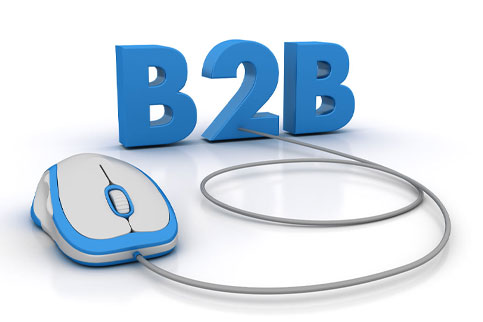5 Easy steps to master sales skills
The question pops up amidst tinkling of glasses, minutes after your first drink at a social event. No, you get ready to explain, I am not in sales, I am in Production Engineering. But wait. Are you sure, you never engage in sales activity? Consider the presentation you made this morning. What got your CEO’s sign off on a new production line? How did you get him to smilingly confess he’s “sold” on your pet project? And if you hadn’t done some selling why did he compliment you on your “pitch”?
That’s the point Rebecca Knight makes in her article “How to Improve Your Sales Skills, Even if You’re Not a Salesperson” carried by Harvard Business Review (May 22, 2017). “At some point in your career, even if you’re not a salesperson, you’re going to have to sell something – whether it’s your idea, your team, or yourself” says Knight.
1. Appreciate what sales is and isn’t
If selling skills are so valuable, how can you improve them? A simple first step could be to understand what sales is not. Quoting Scott Edinger of Edinger Consulting Group, Knight points out that selling is not about pushing people to buy something they don’t want, don’t need or can’t afford. Rather it is about persuading, inspiring and leading. To assimilate this mindset Thomas Steenburgh, Professor at the University of Virginia Darden School of Business suggests you reflect on those unforgettable sales experiences you’ve encountered. You’d discover they all had one common high point. The salesperson came across as someone who took a genuine interest in helping you solve your problem or fulfill your need. It was almost as if the salesperson wasn’t there and the sale happened on its own. What next?
2. Understand what makes your Customer ‘buy’
There are two reasons why people would buy what you pitch, according to Steenburgh - To solve a business problem or to accelerate their progress. And it is up to you to figure out which driver is at work. Speaking to people you’re attempting to influence and other stakeholders would help. You can empathize better by stepping into the other person’s shoes. You would then understand what that person is out to achieve and how he measures his success. With that you can make customize your proposal and make it irresistible. This is just the cerebral part of the game. Next comes the real act of pitching or selling for which you will need to do some ‘dry runs’.
3. Rehearse and practice your pitch
Enlist support to rehearse your pitch. Get yourself a sparring partner. Anyone you can trust is fair game – colleague, manager or even your grandmother. In fact, presenting to a novice or someone who has no knowledge of your subject is a great idea. It will generate questions that can help frame the issues involved with clarity. Mulling over your idea all to yourself may make you miss the crucial connect between your idea and how it can improve the other person’s lot.
4. If your pitch goes awry, refresh and reboot
Even after all the prepping, be ready to shoot some blanks. If at first try, you don’t succeed, relax. It’s nothing to panic about. As Knight reassures – “Even with meticulous preparation, pitches can go awry”. Some tips to get it right the next time:
- Watch your body language – Is it confident and loose?
- Check your facial expression – Relaxed or tense?c
- Monitor your tone and pacing – Are you speaking too fast? Do you sound like you are talking down?
- Examine your focus – Is your focus on the other person’s needs or are you coming across as obsessed with your strengths and positives?
To persevere is good but making progress, however small, is great
5. Ask for the next step and think of the big picture
Good salespeople know that every sale is not a single leap but a hop, step and jump. Understand the path your ‘Customer’ has to traverse before reaching closure. Active patience is key. But that doesn’t mean you walk away having gained nothing. The Steenburgh suggestion, in such cases, is that you must “ask permission to move forward” no matter how tiny the next step is. If the other side seems undecided, wanting more time to review the idea, check with higher levels or is plain hesitant, gently probe whether the idea is too threatening, difficult or expensive. Or if the reservation threshold seems low, check what you can do to help firm up the decision. Think long term. If things don’t work out, muster the courage to get back to your prospect after some time and check for another shot. To develop this mindset, it is helpful if you remind yourself that “it’s not always about you”. Your prospect has lots of other things on his mind besides your proposal. Steenburgh concludes memorably “You’re going to fail more than you will succeed. You just have to have the guts to keep moving forward”
Mercuri Insights
Creating a Sales Culture raises the bar on inter-personal relationships within the organization and across Customer touch-points, before and after the sale. Making this happen is not rocket science. It includes asking the right questions, being better listeners, understanding needs, designing better solutions, being win-win negotiators. What makes good salespeople makes good human beings. The good news is, all of this can be learnt.
Sales in this sense is too important to be learnt only by salespeople. It is indeed a special skill and can be honed only through respect and practice. Selling is beautiful!
Real life success stories
Knight goes on to cite real life success stories of how sales skills swung the fortunes of companies in two completely different sectors
So, what does it all add up to?
Whether or not you are in sales, adding sales skills to your repertoire can make a humungous difference to your success and career progression. International management guru, Tom Peters, sums it up best: “You’re an engineer, you’re an accountant, you’re an MBA, you’re a person involved in the technical stuff. Oh no, you aren’t. If you’re going to be remembered for having gotten things done, you are a salesman in the morning, you are a salesman in the afternoon, you’re a salesman at lunch, you’re a salesman at dinner”
The Harvard Business Review article on How to Improve Your Sales Skills, Even if You’re Not a Salesperson by Rebecca Knight is here















